Sleepy Time

No one can prepare you for the one torturous question parents (both new and seasoned) love to ask, "How's he sleeping?" The answer to this seemingly innocent question tells the asker so much more about the baby and how the parents are dealing with their new bundle of joy than any other question that could be asked. And for those that fall into the category of "Not great," frustration doesn't even begin to describe your state of mind. But here's what no one tells you: What works for one baby, might not work for yours. We've asked sleep specialist Patience Bleskan, a child development educator with The Family Room who leads sleep groups and one-on-one consultations for parents in desperate need of some much needed zzz's for her best tips. Go ahead and give them all a try.
Reset Expectations
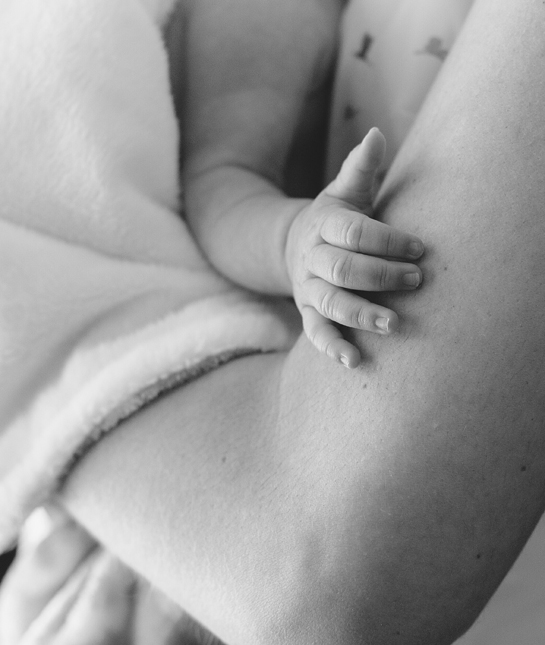
If your hope is to get an infant to sleep from 7 p.m. to 7 a.m. without waking in-between, it's time to reframe that goal. "The idea that babies are supposed to sleep through the night is a cultural bias and isn't based on sleep research," says Bleskan. "If we're looking at biological needs, the adult research says we should sleep in two phases, like Spain's siestas, instead of just one, yet our culture wins out and says we need just one solid stretch of sleep." That said, if you're putting a baby to sleep at 7 p.m., expect him or her to wake up at least once in the middle of the night. According to Bleskan, until they weigh more than 15 pounds, babies rarely can go more than four hours without eating even if they're seven or eight months old.
Fill 'Em Up
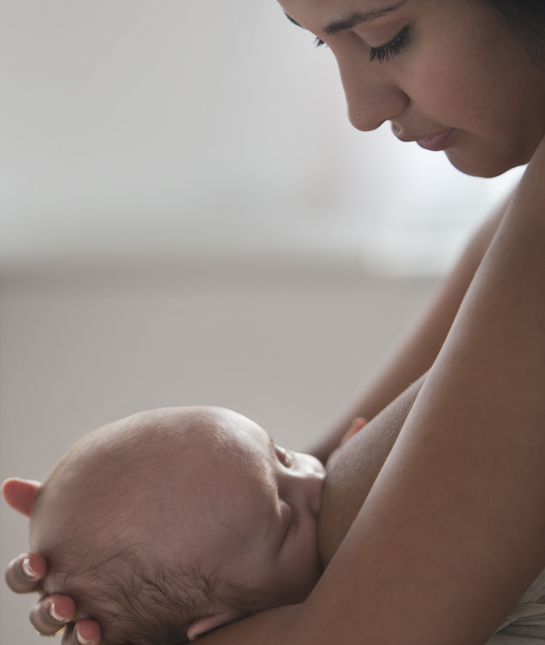
It's natural—especially in the first few weeks—to feel as though all you're doing all day is nursing. That's because you essential are. "Babies have small tummies," says Bleskan. "If we try to spread out the feedings during the day, the result is having to eat at night." Instead of judging a baby's sleep patterns by age (and, thus, comparing it to your friends' babies at the same age), weight is a better indicator of how long they can go without food. In addition to their weight, another factor that impacts length of sleep is the nervous system. Babies have six different states of awareness, explains Bleskan, and being able to move through them (such as drowsiness into deep sleep into light sleep back into deep sleep) will affect how well they sleep—another reason why one sleep tactic might work well for one parent and fail for another.
Trade Off
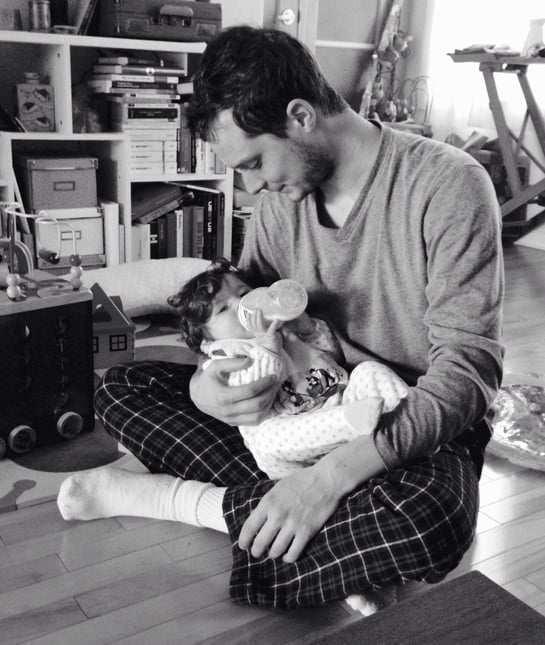
Even if your baby needs to wake after four hours, there are ways you can try to maximize your own sleep—especially if you have a spouse or partner who can help. For example, if baby goes to sleep at 7 p.m. and you go to sleep at 9 p.m., have your partner bottle-feed the baby before they go to sleep at 11 p.m. With a little finagling, you can manage to sneak in some continuous sleep for yourself, even if baby isn't there yet.
Night and Day
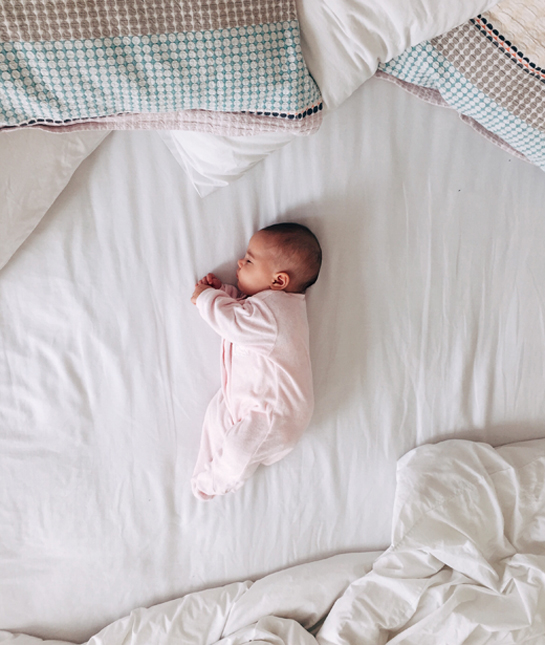
As a baby learns to differentiate between day and night, be mindful of the sleep and napping environments you're creating. Bleskan advises not to use a "one type" sleep environment, in which you keep the room dark and use a sound machine for all naps and at night—unless you want your child to need all of those elements in order to sleep. "You don't want them to be so conditioned that that becomes the only place or way they can sleep," she says. While a dark room and white noise is fine for nighttime sleeping, let your baby take naps in sunlit rooms to help establish their circadian rhythms.
Nap Notes

The number of sleep hours an infant logs in 24 hours depends on age. At week one, they require 16 hours, which decreases to 14 hours by month one and 13 hours by month three. If they're sleeping a fair bit during the day, they're using up their sleep "storage" before nighttime even hits. Even though you'll still want to maintain a nap schedule, you can gradually transfer some of their daytime sleep into the night by waking them up if they're snoozing too long. "You don't want to make them cranky, but you want to encourage a different level of awareness," says Bleskan. For shortening naps or moving the naps around, she suggests changing environments and being active around the baby after waking them up. For instance, take them out of the room in which they were napping and have playtime in another room.
Co-Sleep Longer
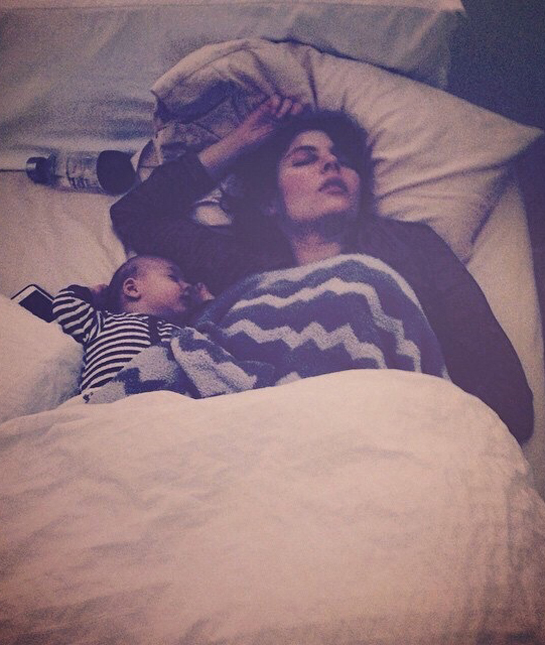
A common misnomer Bleskan has encountered is the age at which most parents (and some pediatricians) say a child should start sleeping on his own. While there's the tendency to want to put a baby in her crib within a few months, Bleskan suggests waiting until they're 12 months, which is also the recommendation of the American Academy of Pediatrics. Besides the potential safety benefits, sleeping in the same room and sharing a sensory space together helps babies subliminally learn how to regulate their breathing patterns and their nervous system during sleep.
Sleep at an Angle
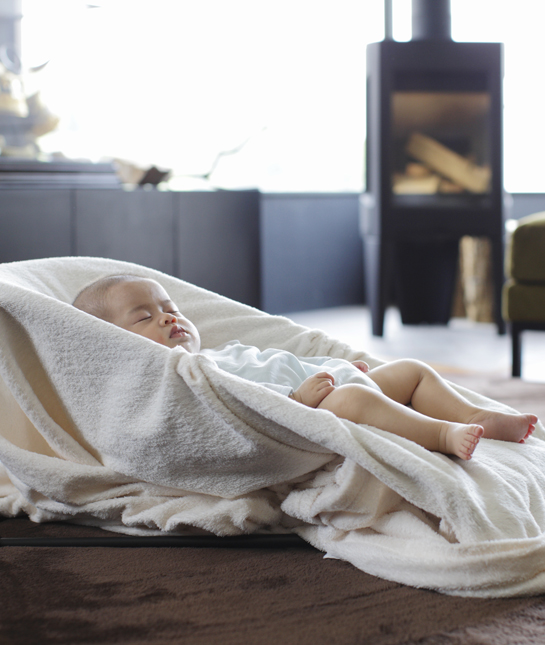
Until three months of age, Bleskan suggests that every baby sleep at an incline. The reason? The gasket that connects the esophagus and throat isn't fully closed prior to three months of age and laying them on a flat surface causes them to regurgitate what they've eaten. This is why many babies experience acid reflux—a potential cause that could be waking them up in the middle of the night. Either elevate the mattress slightly or try having them sleep in a sleeping rocker and see if that results in a longer stretch of sleep.
Product Promises
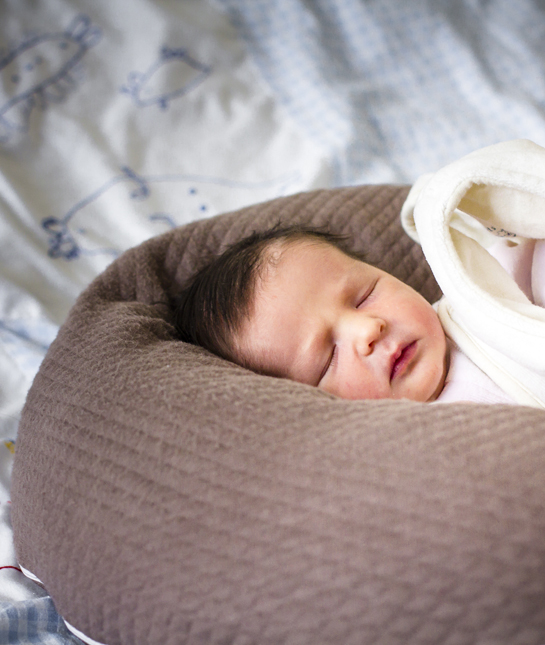
Instead of ordering every sleep product you've been recommended, try different tactics first—whether it's feeding your baby more during the day or trying a dream feed at night. "A lot of times sleep products just put Band-Aids on the sleep issue," explains Bleskan. Since sleep doesn't have a one-size-fits-all solution (there has yet to exist one blanket or one pillow that works wonders for everyone) chances are it will be a waste of your money to try every product on the market that promises your baby (and you) better sleep. And bear in mind that each new sleep tactic you try typically takes a week (sometimes less) before it sticks.
Show What Sleepy Means

One of the best ways you can help your children establish good sleep patterns as they get older is to help them independently recognize when they need to sleep. This can be done by describing their sleepy behaviors to them. "When we notice them yawning or have red eyes or are getting cranky, point that out to them by saying, 'Wow, you're having a hard time with that. That means your body is tired. It's time to take a rest,'" says Bleskan. "Give them information and take them to a place where they can move into sleep." Before long, you'll have a child who will proudly announce when it's bedtime.




